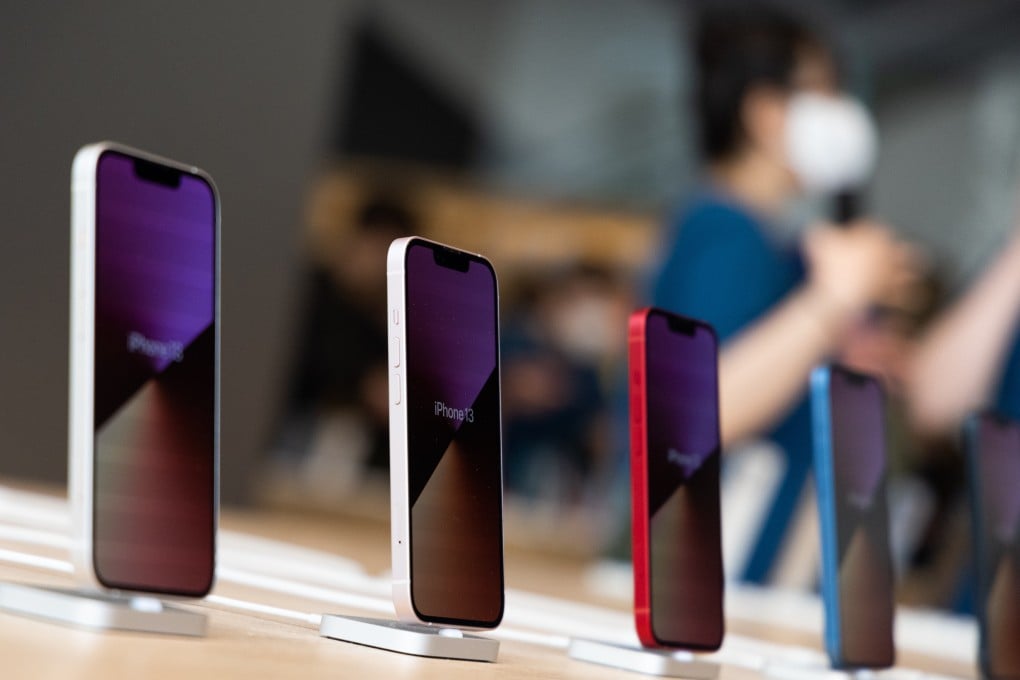Advertisement
Apple’s iPhone sales make up half of China’s high-end smartphone market in second quarter, solidifying US firm’s lead
- Strong iPhone 13 sales helped Apple take up 46 per cent of China’s market for smartphones that cost more than US$400
- Vivo jumped to second place for the first time as rivals try to fill hole left by Huawei in wake of US sanctions
Reading Time:2 minutes
Why you can trust SCMP
10

Apple’s iPhones made up half of all smartphones sold for more than US$400 in China in the second quarter, solidifying the US tech giants’s lead as the top premium handset vendor in the country, as domestic brands vie to replace Huawei Technologies Co.
Strong iPhone 13 sales helped Apple take 46 per cent of China’s premium smartphone segment for the second quarter, according to a report from Counterpoint Research released on Wednesday. Its market share is up from 43 per cent in the same period last year.
In the ultra high-end segment, defined as smartphones priced at US$1,000 or higher, iPhone sales jumped 147 per cent year on year. Samsung Electronics has also enjoyed rapid growth, with sales rising 133 per cent in the same category for the period, according to the report.
Advertisement
“Both [Apple and Samsung] benefited from Huawei’s decline and the shift in purchase trends towards premium phones in China,” Counterpoint analyst Zhang Mengmeng said in the report.
Apple, which is expected to launch the iPhone 14 on September 7 in the US, has maintained a strong grip on China’s smartphone market amid challenges faced by local rivals. Most notably, Huawei has struggled to sell new models launched since coming under US sanctions in 2019.
Advertisement
Huawei dropped to third place with 11 per cent market share for the quarter, down from 19 per cent a year earlier. Huawei, formerly China’s largest smartphone vendor, has seen its once lucrative smartphone business decimated since Washington added the telecoms equipment maker to a trade blacklist.
Advertisement
Select Voice
Select Speed
1.00x